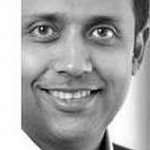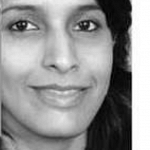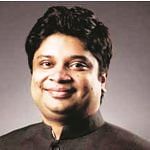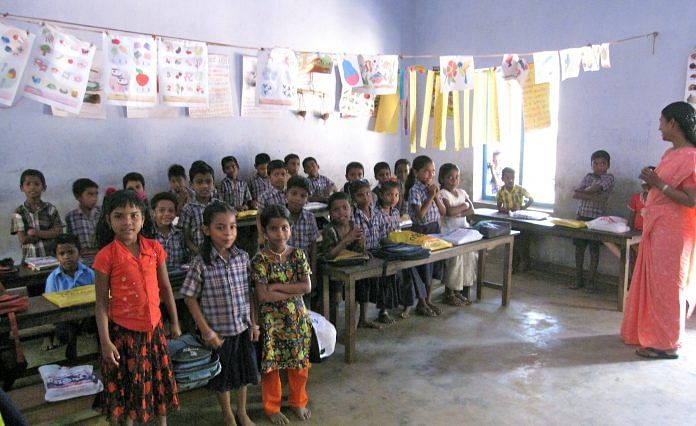Das says “for 70 years we have wanted our children to grow up into fee thinking, confident and innovative Indians. But our education system has done everything possible to disempower them”. He talks about the need to improve facilities in government schools, setting up more private institutes, granting them autonomy, allow them to set their own curricula and let them make profits.
 How the Bodo Accord was accomplished, establishing a wider template for peace in the Northeast
How the Bodo Accord was accomplished, establishing a wider template for peace in the Northeast
Wasbir Hussain | Political commentator and political analyst
The Times of India
Hussain traces the journey that led to the new Bodo accord, which was signed by the government and all the rebel factions, “bringing the curtain down on more than three decades of militancy in one of South Asia’s hottest insurgency theatres”. He calls the accord “a peace template” for when the government pushes its peace efforts in states such as Manipur.
Neelkanth Mishra | Co-head of Asia-Pacific Strategy and India Strategist for Credit Suisse
The Indian Express
Mishra writes that even though Finance Minister Nirmala Sitharaman tried to address issues facing the economy, two important fiscal risks remain. One relates to the fiscal pressures felt by state governments and the other is the non-tax receipts that will fund expenditure growth in 2021, “providing a counter-cyclical buffer”.
Sugata Bose | Gardiner Professor of Oceanic History and Affairs, Harvard University and a former MP
The Indian Express
Bose writes that even though Ambedkar and the Constituent Assembly had “profound insights” into universal adult franchise, minority protections etc., they fell short “on the question of emergency provisions and federalism”. Thus, “the uplifting quality of the Preamble being recited all over the country is undermined by the menacing potential of certain clauses left as the legacy of colonial authoritarianism”, notes Bose.
 The quest for regional connectivity
The quest for regional connectivity
Constantino Xavier | Fellow at Brookings India
Hindustan Times
Xavier writes that India has made unprecedented progress in increasing its connectivity with the rest of South Asia to facilitate deeper integration. However, some challenges remain: policy implementation deficiencies and constantly blaming China. Integration will not happen unless India opens up its market and South Asia is no longer India’s exclusive backyard.
 Why the anti-CAA protesters are wrong
Why the anti-CAA protesters are wrong
Kanwal Sibal | Former foreign secretary
Hindustan Times
Sibal writes that many arguments against the CAA and the NRC “do not stand scrutiny”. “Maintaining a database of citizens is a vital aspect of sovereignty, national security and governance” and the NRC does just that, he notes. On the argument that Rohingyas and Ahmadis should also be given citizenship, he writes that India has “no higher obligation” to give citizenship to them since they have not claimed refugee status and entered India.
Sukanta Chaudhari | Professor emeritus, Jadavpur University, Kolkata
The Economic Times
Chaudhari asks why “meritorious” universities like JNU, Jadavpur University, Aligarh Muslim University, Jamia Millia Islamia and the University of Hyderabad have been viewed as “dens of sedition”. Perhaps this is because “intolerance and surveillance culture of the ruling establishment has infected university administration”, he explains. Therefore, what “bedevils our higher education system is a total failure of trust and communication”, he adds.
 Change in these inflated times
Change in these inflated times
Abhishek Gupta | Senior economist, Bloomberg Economics
The Economic Times
Gupta calls for an “overhaul” of RBI’s inflation targeting, which is currently bogged down by
“RBI’s conservative bias to overachieve on its inflation target and the choice of headline consumer price index (CPI) inflation as the nominal anchor”. Using “a combination of core wholesale price index (WPI) and core CPI inflation” as a measure instead, would prevent “policy flip flops” and help RBI achieve “maximum feasible growth”.
 India’s puzzle of consumption, credit and confidence
India’s puzzle of consumption, credit and confidence
Abheek Singhi | Managing director, BCG Asia Pacific
Kanika Sanghi | Partner and associate director, Center for Customer Insight, BCG India

Mint
Singhi and Sanghi explain that syncing of consumption, credit and confidence among consumers is key to economic growth. Consumption is not dead in India but “sectors and categories with the greatest exposure to rural geographies, wholesale dependence and large-ticket sizes have been the worst hit”, they explain. These include real estate or automobiles. Apart from government measures to address this, companies should ideate ways to “reduce credit requirements and increase the confidence of their consumers as well as channel partners”, they add.
 A Kafkaesque novel appears to be writing itself in the country
A Kafkaesque novel appears to be writing itself in the country
Salil Tripathi | Writer based in New York
Mint
In his piece, Tripathi sarcastically explains how being booked on sedition charges has become normal in India, including “extraordinary investigative overreach” by state police. Take the arrest of a school teacher in Karnataka over an anti-CAA play. With an economy on the brink of a “coronavirus-influenced global slowdown”, the central government’s priority seems to be “matters of faith and identity”, he writes.
Pranjul Bhandari | Chief economist, India, HSBC Global Research
The Financial Express
Bhandari addresses some “lingering questions” after the announcement of FY21 Budget Saturday. These include impact on growth, “sanctity” of the fiscal deficit target, central government’s dependence on the National Small Savings Fund, the “cost” of the corporate tax rate cut, the “sudden urge to attract foreign inflows” and the dearth of initiatives for the housing and NBFC sectors.
 The great expectations challenge
The great expectations challenge
Dhiraj Nayyar | Chief economist, Vedanta
Business Standard
Nayyar observes that “a do-little Budget” was possibly the best option for FM Sitharaman, however, she should have structured her speech “to explicitly note the economic context and detail the government’s strategy”. He also points out that “fortunately, the economic cycle is not coinciding with the political cycle”.
Today’s Editorials
The Indian Express: The daily writes on the passage of six months since Article 370 was revoked in Jammu and Kashmir. It notes that it is still far from clear whether this has been accepted by the people of the Valley. The Valley’s economy is based on apples, trade and tourism – all badly hit. Lack of free communication networks and continued detention prove that the Kashmiri opinion has not been allowed to be resurfaced, Express says in ‘Six months later’.
The Times of India: The government’s statement in the Parliament that it has not taken any decision yet on preparing a National Register of Citizenship is not enough to bridge the political trust deficit, TOI writes in ‘Change Track’. It suggests that it would be useful for the PM to fall back on his “minimum government, maximum governance” call and fix the economy which is in dire need of attention, it suggests.








